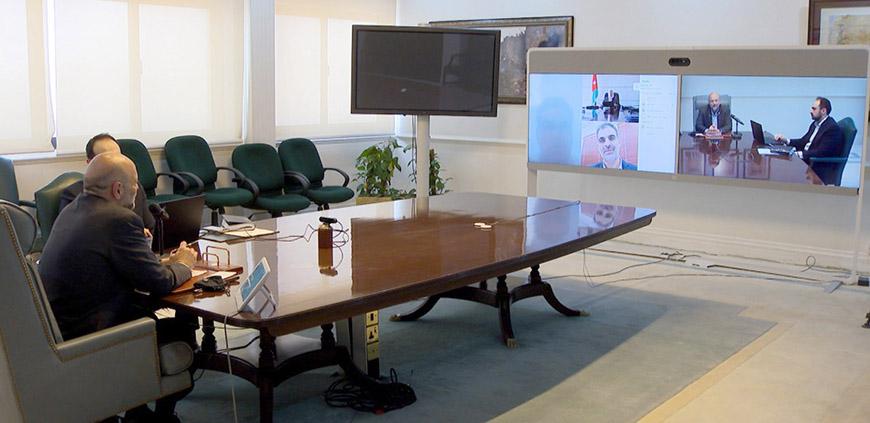- Local News
- Thu-2020-05-14 | 02:52 pm

During a virtual meeting with Minister of Social Development Basma Ishaqat and Social Security Corporation (SSC) Director General Hazem Rahahleh, Razzaz stated: "Our social protection network has become distinct, as its services have reached most needy families.”
The prime minister stressed that the Kingdom "has already come a long way” in avoiding the pandemic’s health repercussions, and now, its social impact, the Jordan News Agency, Petra, reported.
He also lauded the efforts of the Ministry of Social Development and the National Aid Fund (NAF) to deliver support to beneficiaries.
According to official figures, about 300,000 Jordanian families have received support, while some 40,000 to 45,000 families will be offered assistance by the end of May. The total number of beneficiaries will reach some 1.5 million citizens, with an average family size of 4.8 members.
Razzaz also highlighted the SSC’s efforts during the crisis: "Through the social security programmes, we have so far been able to help companies that faced difficulties since the beginning of the crisis with a liquidity of JD85 million, and we provided various services related to the unemployment programme to 120,000 subscribers or 600,000 citizens.”
Around 12,000 establishments are newly registered with the SSC, he added.
The government’s support to needy families and daily wage workers came through the partnership of the state budget, the Himmat Watan Fund and the Zakat Fund, and was accompanied by the distribution of food parcels through the Jordan Hashemite Charity Organisation and Tkiyet Um Ali.
Briefing Razzaz on the NAF programmes, Ishaqat said that during March, the fund managed to deliver assistance to the homes of 99 per cent of the families during the comprehensive curfew period.
The allocations for April were delivered to beneficiaries through a mechanism organised in cooperation with the postal company, as the allocations were delivered for the second month in a row to around 50,000 families via their bank accounts or e-wallets, at a value of approximately JD9.5 million.
Rahahleh also briefed the prime minister on the SSC’s efforts during the crisis, noting that a total of 9,700 institutions have benefitted from the suspension of old-age insurance, while the additional liquidity reached JD85 million.
Highlighting the role of Defence Order No. 1, which suspended some provisions of the 2014 Social Security Law, in underpinning the private sector, Rahahleh said that the Defence Order will continue to be implemented until the end of May, noting that the additional liquidity is expected to reach JD130 million.









